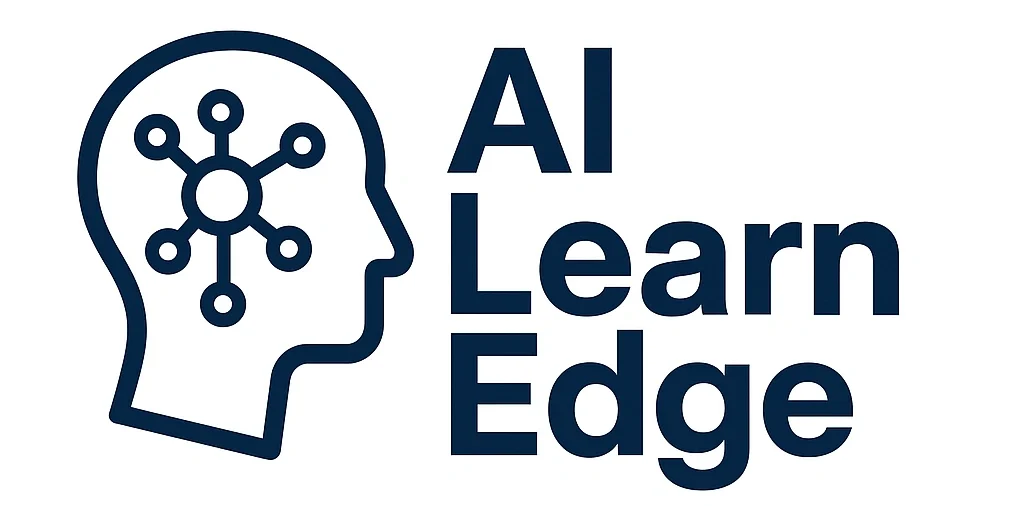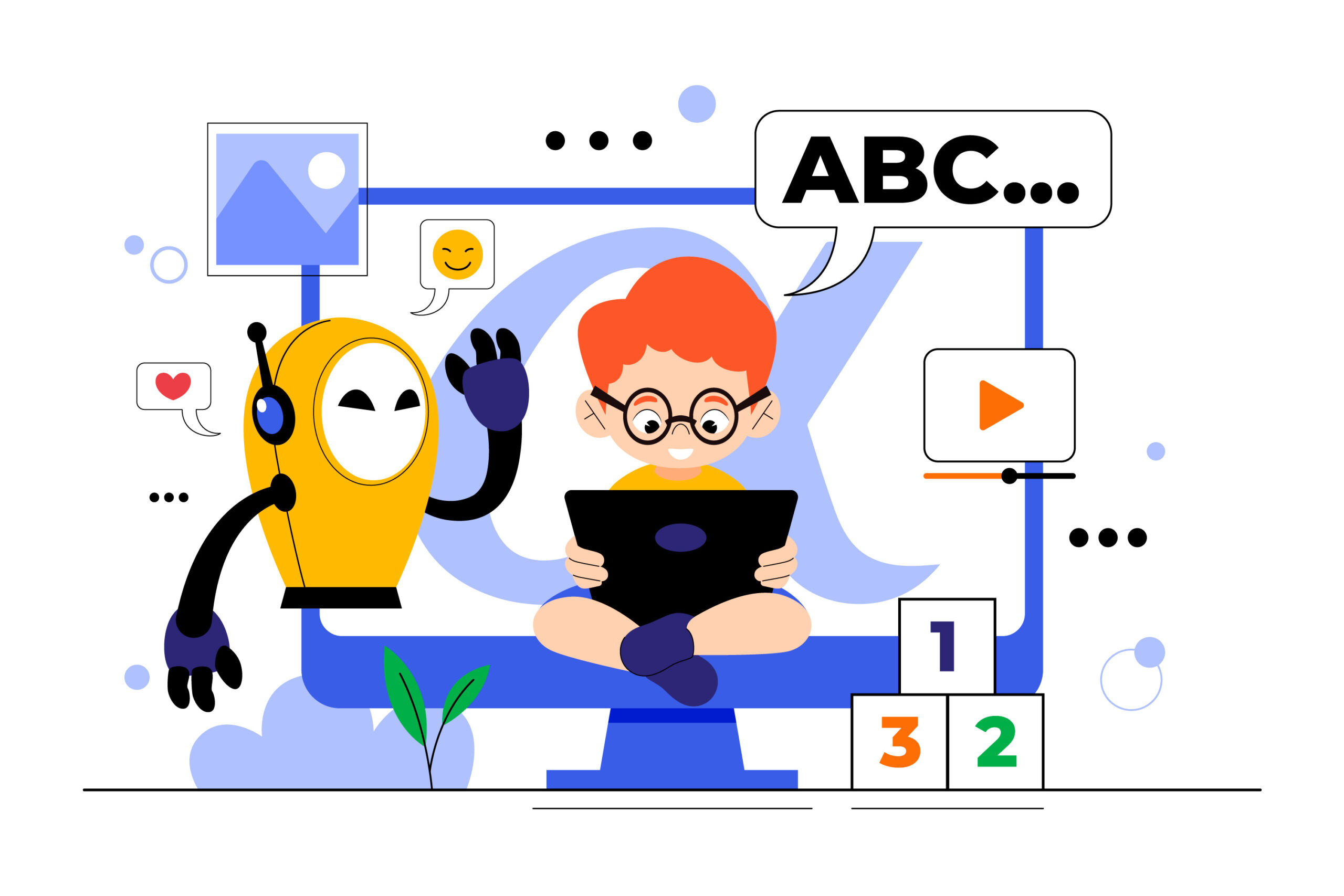Artificial Intelligence (AI) is no longer just a buzzword—it’s a revolution shaping the future of how we live, work, and connect. From self-driving cars to chatbots, smart recommendations to medical diagnostics, AI has become an integral part of our world. For beginners who dream of mastering this transformative technology, AI Learn Edge offers the perfect path to start from zero and rise to professional mastery.
In this article, we’ll guide you through what AI is, why it matters, the core concepts you must learn, and how to systematically build your skills to become an AI expert—step by step.
What Is Artificial Intelligence?
Artificial Intelligence refers to the ability of machines to mimic human intelligence—learning from data, reasoning, solving problems, and making decisions. In simple words, AI enables computers to “think” like humans.
It encompasses various subfields such as:
- Machine Learning (ML): Teaching computers to learn from data and improve automatically.
- Deep Learning: Using neural networks to model complex patterns in images, speech, and text.
- Natural Language Processing (NLP): Helping computers understand and communicate in human language.
- Computer Vision: Allowing machines to interpret and analyze visual information from the world.
AI is not about replacing humans—it’s about augmenting human capabilities and enabling smarter, faster, and more efficient decisions.
Why Learn AI in 2025?
The demand for AI professionals is skyrocketing across every industry. Companies are investing billions in automation, analytics, and intelligent solutions. According to global tech reports, AI jobs are among the fastest-growing and highest-paying roles in the world.
Here’s why learning AI gives you an edge:
- Career Growth: AI engineers, data scientists, and ML experts earn top salaries and enjoy strong job security.
- High Demand: Organizations across healthcare, finance, retail, and education need AI specialists.
- Innovation Opportunities: With AI, you can build products that make real-world impact—like predictive healthcare tools or intelligent assistants.
- Future-Proof Skills: As automation expands, AI literacy becomes essential to stay relevant in any career.
Learning AI in 2025 isn’t just a choice—it’s an investment in your future.
Step-by-Step Guide to Master AI from Scratch
Many beginners fear AI because it sounds complex. But with the right approach, anyone—from students to working professionals—can learn it successfully. Here’s a structured roadmap you can follow through AI Learn Edge or similar programs.
1. Build a Strong Foundation in Mathematics and Programming
AI is built on three core pillars: math, coding, and logic.
- Mathematics: Focus on linear algebra, calculus, probability, and statistics. These topics help you understand how algorithms learn and make predictions.
- Programming: Start with Python, the most popular language for AI. Learn libraries like NumPy, Pandas, and Matplotlib.
- Logic & Algorithms: Understand how computers process information and solve problems efficiently.
If you’re completely new, spend your first few weeks learning Python basics and simple math applications before moving into advanced topics.
2. Understand Machine Learning
Machine Learning (ML) is the backbone of AI. It teaches computers to learn from data and improve performance over time.
Key concepts to cover:
- Supervised Learning: Algorithms learn from labeled data (e.g., predicting house prices).
- Unsupervised Learning: Finding hidden patterns in unlabeled data (e.g., customer segmentation).
- Reinforcement Learning: Teaching agents to make decisions by rewarding good actions (e.g., game AI).
Tools and frameworks to learn:
- Scikit-Learn: For implementing ML models.
- TensorFlow and PyTorch: For deep learning and neural networks.
Try hands-on projects like predicting stock prices, recognizing handwritten digits, or classifying emails as spam or not.
3. Dive into Deep Learning
Deep Learning takes AI to the next level using neural networks inspired by the human brain. It’s responsible for breakthroughs in image recognition, speech processing, and language translation.
Important concepts:
- Artificial Neural Networks (ANNs)
- Convolutional Neural Networks (CNNs) – used for image analysis.
- Recurrent Neural Networks (RNNs) – used for sequential data like speech or time series.
- Transformers – the foundation of modern large language models like ChatGPT.
Once you understand the basics, start experimenting with projects using TensorFlow or PyTorch.
4. Explore Natural Language Processing (NLP)
NLP is what enables machines to understand, interpret, and respond to human language. It powers voice assistants, chatbots, and translation tools.
Core NLP skills:
- Tokenization, stemming, and lemmatization
- Sentiment analysis
- Text classification
- Language modeling and text generation
Popular tools include NLTK, spaCy, and Hugging Face Transformers. You can build projects like sentiment analysis for social media posts or your own chatbot.
5. Learn About Data Science and Data Handling
AI relies heavily on data—the fuel that drives intelligent models. Learning how to collect, clean, and analyze data is critical.
Focus on:
- Data preprocessing and feature engineering
- Visualization using Matplotlib or Seaborn
- Handling large datasets with Pandas
- SQL for database queries
Understanding data pipelines and real-world data issues will help you become a practical AI engineer rather than just a theoretical one.
6. Practice Real-World Projects
The best way to learn AI is by doing projects. Start with simple ones and gradually take on complex challenges. Some ideas include:
- Image classifier (e.g., cat vs. dog)
- Chatbot using NLP
- Movie recommendation system
- Predictive sales model
- AI-powered resume analyzer
Projects demonstrate your ability to apply knowledge and are essential for building a portfolio that impresses employers.
7. Understand Ethics and Responsible AI
As AI becomes more powerful, ethical concerns grow—like bias, privacy, and fairness. Every AI learner must understand how to build responsible, transparent, and unbiased systems.
Study topics such as:
- Data privacy and consent
- Algorithmic bias
- AI fairness and accountability
- Explainable AI (XAI)
Ethical AI development ensures technology benefits society without harm.
8. Join the AI Community and Keep Learning
AI is a rapidly evolving field. Stay updated by joining AI communities, forums, and hackathons. Follow experts, read research papers, and take part in open-source projects.
Recommended platforms:
- Kaggle: For competitions and datasets
- GitHub: To share and collaborate on AI projects
- Medium and arXiv: For AI articles and research
Remember, AI mastery is a journey—not a destination. Continuous learning keeps your edge sharp.
How AI Learn Edge Helps You Master AI
AI Learn Edge is designed for beginners who want a structured, step-by-step learning experience. It focuses on hands-on learning, real projects, and industry mentorship to transform you from a novice to a skilled AI professional.
Highlights of the program:
- Beginner-friendly curriculum
- Live classes and recorded sessions
- Projects based on real industry problems
- Certification upon completion
- Career support and mentorship
Whether you’re a student, software engineer, or tech enthusiast, AI Learn Edge gives you the tools and guidance to succeed in the world of Artificial Intelligence.
Conclusion
Artificial Intelligence is redefining our world, and learning it from scratch is easier than ever with the right approach. By mastering math, programming, machine learning, and deep learning—while staying curious and ethical—you can unlock limitless career and innovation opportunities.
The future belongs to those who understand and build intelligent systems. Start your journey with AI Learn Edge, and take your first step toward becoming a creator of the intelligent future.





